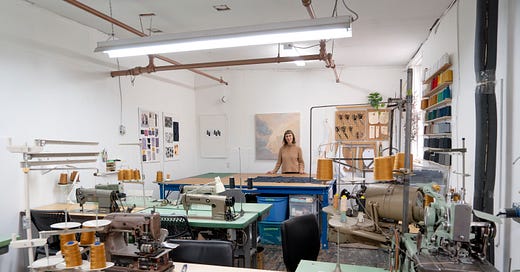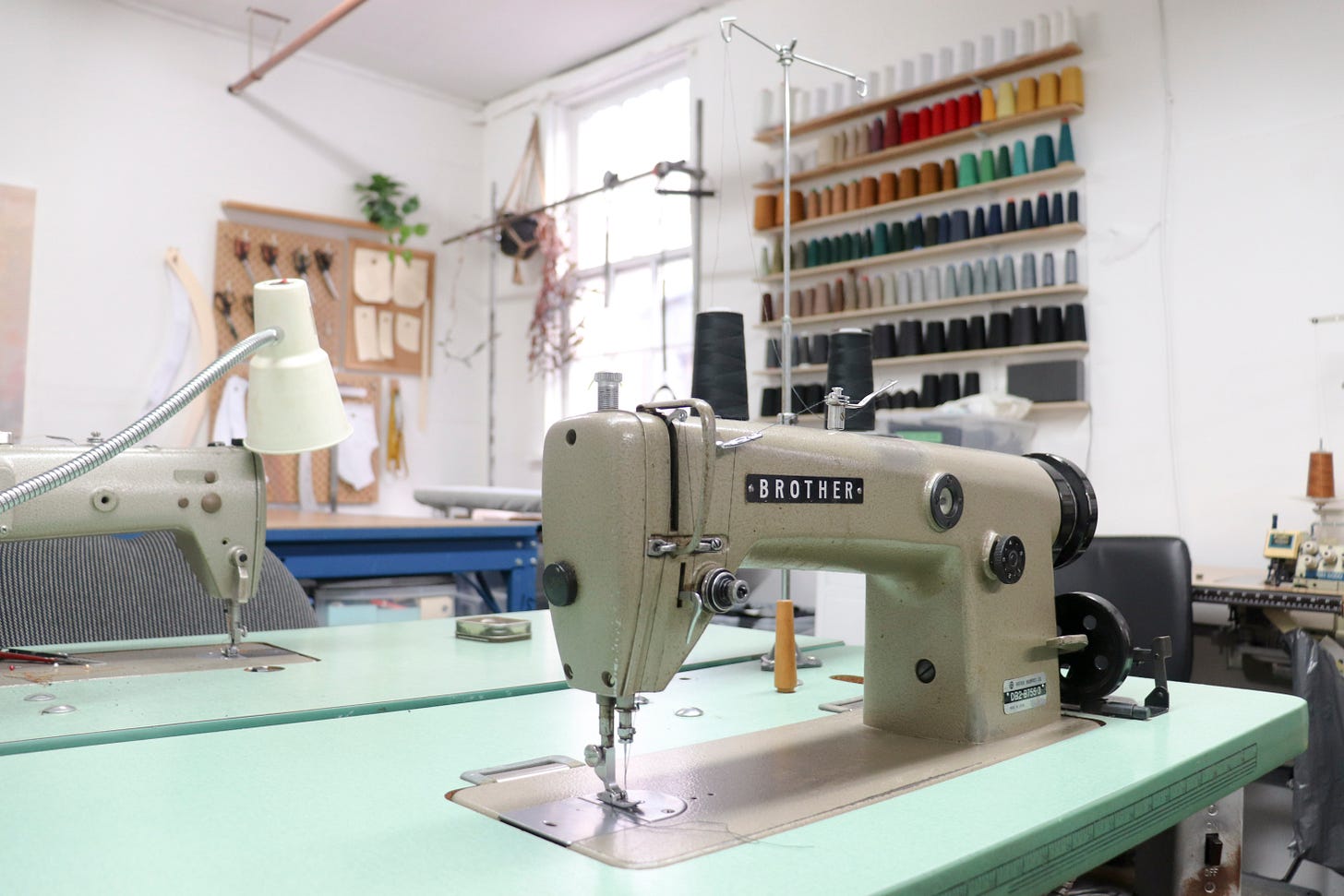This Jeans Brand is on a Mission to End the Waist Gap
The designer is so serious she got an MBA before launching the brand
In August 2023, someone I know reposted an Instagram callout seeking people with waist-hip ratios of 10 inches or above to serve as fit models for a forthcoming new denim brand. As someone who easily clears those measurements, I was intrigued. They were offering $25 as compensation, and the chance to fulfill some narcissistic fantasy about using my body to shape the direction of a fashion brand, as well as get paid to try on clothes, was irresistible.
Weeks later, I arrived at a charmingly shabby industrial building on Dupont Street filled with bare bones artist studios—basically a less-storied version of 888 Dupont. (Painter Jeanine Brito, who recently moved to Brussels, used to work out of the same building.) The studio was filled with heavy-duty sewing machinery and an assistant brusquely recorded my measurements before handing me a muslin sample to try on. A month later, I came back to repeat the process with an actual pair of jeans. After finishing up, I chatted with the designer, Katie Switzer, about which pants brands tended to fit (J. Brand, the Gap) and which slow fashion brands I was a fan of (Rudy Jude…those utility jeans still have me in a chokehold).
A full year later, Form Era, Switzer’s slow fashion denim brand for women with curvy measurements (size rage: 24-48), was born. It felt cool to be slightly involved in helping to shape the direction of a brand in some miniscule way, so I recently paid another visit to Katie’s studio to talk more about her burgeoning business and introduce the world to this exciting new label.
Every year, hundreds of starry-eyed designers found new fashion labels hoping to become the next Raf Simons, Jil Sander, or at the very least, Eliza Faulkner. But very few of them decide to go back to school to get an MBA before they launch. “The last thing I wanted to do was crash and burn for not having done my research,” says Katie Switzer, the healthcare administrator turned fashion designer who launched her premium denim brand for those with curvy measurements, Form Era, last October.
Before launching Form Era, Switzer spent a full year at Toronto Metropolitan University working through business case studies, interviewing industry experts and surveying the market to make sure she was fully ready to start her own business. “I was able to workshop the idea through every single class I took,” she says. In one particularly challenging math class, she gathered data on competitors by scouring the internet for the measurement charts of every single curvy fashion brand she could find, then plugged the info into a mathematical model to determine the average waist-hip difference, size run, and price point between all the brands.
A self-taught sewer since the age of 12, the idea for Form Era took root when Switzer was enjoying a summer weekend at the cottage with friends in 2019. She had brought a pair of self-made olive green jeans with a side zipper which caught the eye of her friends so much they decided to take turns trying them on—miraculously, they fit every single person perfectly. “It was like Sisterhood of the Traveling Pants,” she says.
From then on she decided to get serious about the idea and quit her job as a healthcare administrator at CAMH in 2023. “I have two kids and I realized I could have a few hours a months to sew until they were grown up or I could try to make it my life.” Form Era was borne out of Switzer’s desire to buy good quality, made in Canada jeans that actually fit her curvy frame.


After acing her MBA, Switzer launched with two styles: the Winona, a Western-inspired ‘70s wide leg and the Stevie, a still-wide but slightly less flared leg. The size range runs from 24 to 48. Each style is available in standard denim and a unique marbled pattern done by her friend, the artist Sabine Spare.
As a fit-focused brand, Form Era’s biggest challenge is getting the product in front of people aka getting butts into jeans. “Our conversion rate is much higher in person than it is online,” Switzer says. She estimates around 30% of people who try on a pair in-person end up making a purchase. Comparatively, the average online conversion rate for e-commerce businesses hovers around 2%. Right now, the plan to bring Form Era to the people is to participate in more upcoming vendor markets, such as the One of a Kind show. They held their first in-store popup at Nouveau Riche Vintage and recently held a sample sale with Modern Sunday.
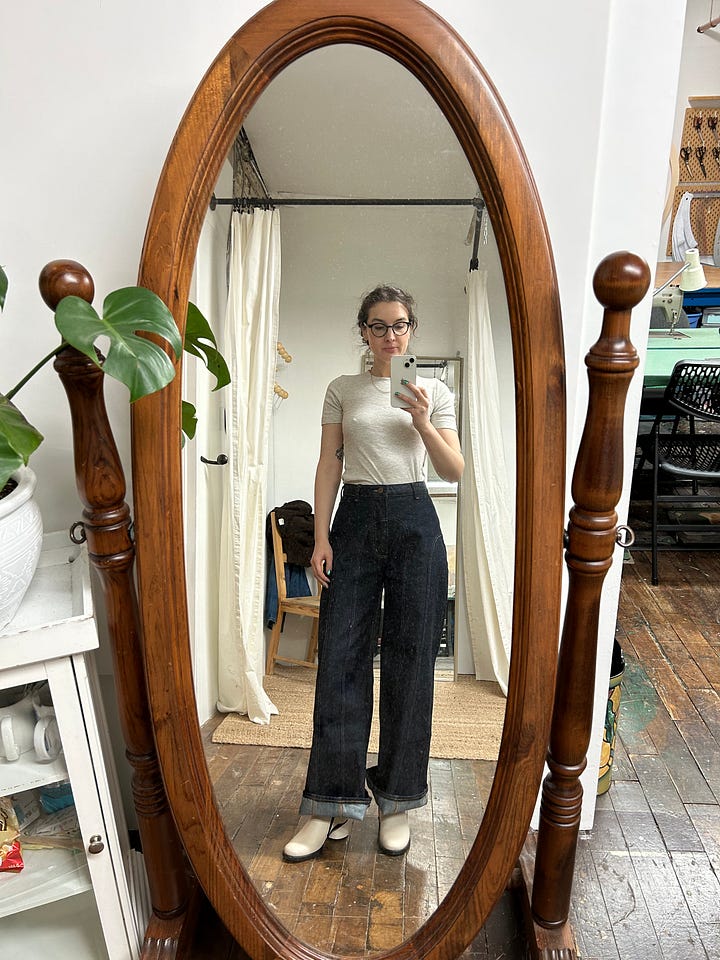

“We haven’t made our costs back but we’ve made a decent number of sales since we’ve launched,” says Switzer, who self-funded the brand using money she received as inheritance after a parent passed away. While she has “no idea” how much of her own money she’s invested in the project at this point. She’s given herself a deadline of September 2025 to determine whether or not the business model as it stands is a viable one.
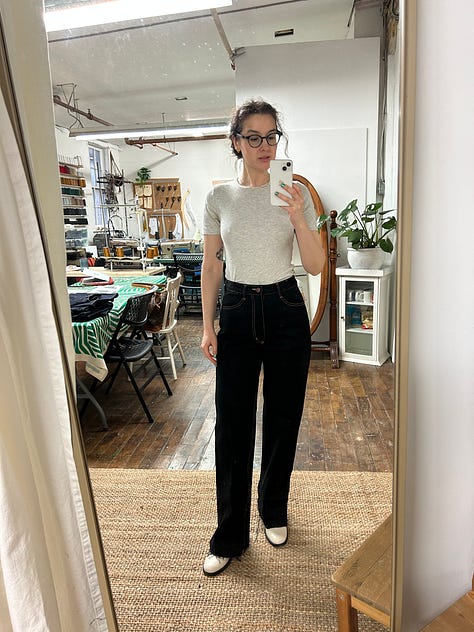
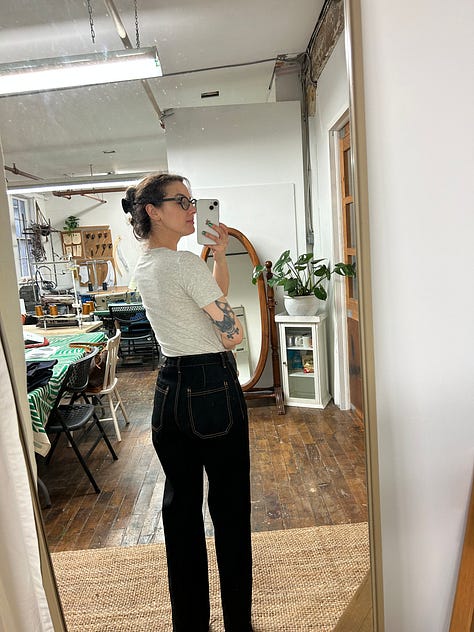

Luxury brands tend to make most of their sales in perfume and handbags, not clothes. But instead of launching more products, Switzer prefers the idea of using her brand to build in-person community. She can envision an expansive future where Form Era encompasses not just jeans, but a full universe of workshops, sewing lessons and events. “I’m not married to any way that it might work,” she says. “I really want these jeans to exist, and I don’t care how.”
Form Era denim is available for purchase online, or by appointment in-studio.


